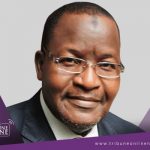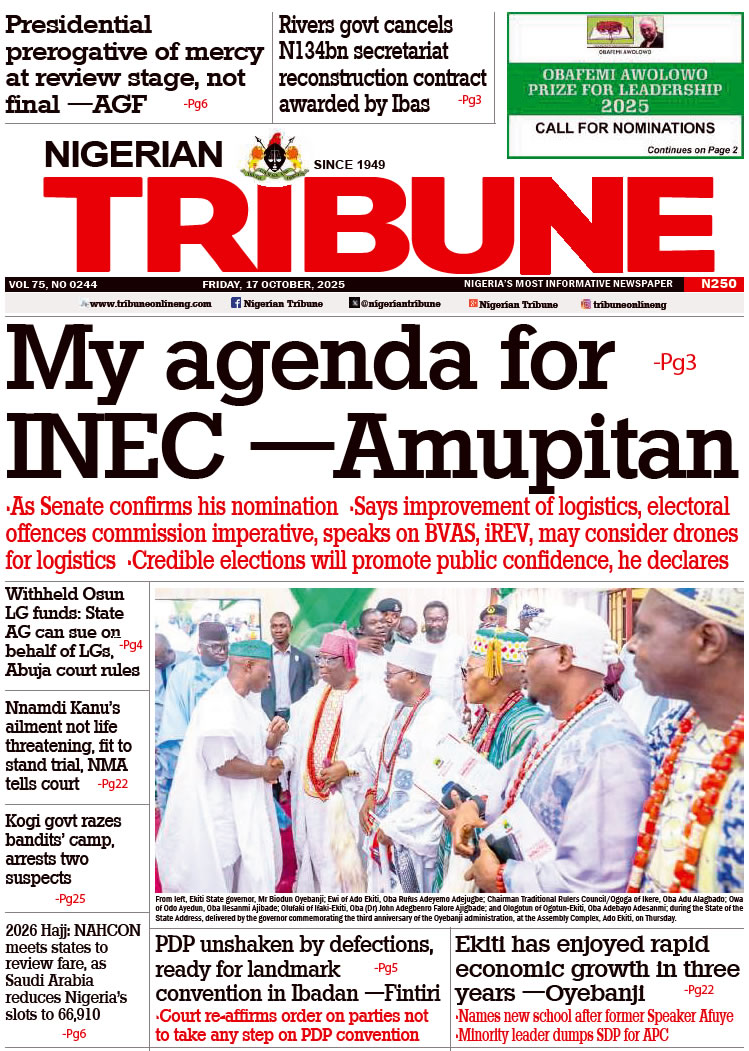The Committee of Vice-Chancellors of Nigerian Universities has engaged the leadership of the Academic Staff Union of Universities (ASUU) over the threat to embark on another round of strike action.
The Vice-Chancellors, however, revealed that the government has incurred a funding gap of N221 billion yearly from 2018 to 2021, totalling N884 billion in the last four years.
Chairman of the Committee of Vice-Chancellors of Nigerian Universities, Professor Samuel Edoumiekumo, made this known during an engagement meeting with the leadership of the Academic Staff Union of Universities (ASUU),
He called on the Federal and State Governments to break the unending circles of university-based labour unions unrest that had been going on for more than 30 years.
While insisting on a consistent academic calendar, Edoumiekumo noted that the Nigerian public Universities would not take their pride of place globally and regionally if the country cannot guarantee its academic schedules.
A statement signed on Monday by CVC Secretary-General, Yakubu Ochefu, on Monday, in Abuja, indicated Edoumiekumo on Friday, December 17, 2021, had an engagement meeting with Professor Victor Osodeke, President of the Academic Staff Union of Universities, to discuss some issues affecting University education in Nigeria.
The meeting was attended by former ASUU Presidents like Dipo Fasina, Nasir Fagge, Biodun Ogunyemi and other members of the National Executive Committee, also discussed issues bordering on the lingering problem with the unions on Integrated Personnel Payroll Information System (IPPIS) and the poor state of security on university campuses.
The CVCNU Chairman at the meeting x-rayed some of the current challenges that include very poor funding of public universities such that a gap of N221 billion has been incurred yearly from 2018 to 2021.
Edoumiekumo who was accompanied by the Secretary-General, Professor Yakubu Ochefu, formally congratulated Prof Osodeke on his emergence as National President and on behalf of the General Assembly of Nigerian Vice-Chancellors, wished him a most successful tenure.
He acknowledged the tremendous efforts ASUU has been making over the years in championing the repositioning of University higher education in Nigeria.
He stated that as key stakeholders in the Nigerian University system, it was important that from time to time, both parties meet to discuss local and global best practices in University education, innovative ways of confronting and managing challenges and deep thinking on the future of the Nigerian university system.
“The Chairman x-rayed some of the current challenges that include very poor funding of public universities such that a gap of 221 billion naira has been incurred yearly from 2018 to 2021; problems associated with the implementation of IPPIS in Federal Universities; Autonomy of Universities, and the presence of several conflicting laws; the current status of the FG/University-based unions’ agreements; the lingering problem with the unions on IPPIS; and the poor state of security on university campuses,” the statement said.
He stated that Federal and State Governments need to take the bull by the horn to break the unending circles of university-based labour unions unrest that had been going on for more than 30 years by thinking creative solutions and resolving politically to implement such solutions.
He affirmed that Nigerian public Universities would not take their pride of place globally and regionally if we cannot guarantee basic things like an academic calendar.
The Chairman presented a report produced by CVCNU on the “Review of 2022 National Budget as it affects Nigerian Federal Universities” to the ASUU that highlights some of the thinking on addressing the funding challenges in Nigerian Universities.
Professor Edoumiekumo, in the course of the meeting, informed the National President that the Committee of Vice-Chancellors, in its fight against plagiarism and promoting originality in academic research, had developed the EagleScan Plagiarism Detection Software.
He stated that like University Transparency Accountability Software, UTAS, Eaglescan was developed by the CVCNU in conjunction with Directors of ICT of six Nigerian Universities and was now fully ready for adoption in all Nigerian Tertiary Institutions.
CVCNU Chairman also shared with ASUU the draft of a Model Intellectual Policy for Nigerian Universities, developed in conjunction with the Nigerian Copy Right Commission and requested to have ASUU’s inputs before the final draft is presented to universities in 2022.
National President of ASUU Professor Osodeke thanked the Leadership of CVCNU for initiating the meeting and expressed the desire of the Union to work with all genuine actors that will add value and make our universities better.
He lamented that a gulf had emerged in CVCNU/ASUU relations in recent times but was pleased by this meeting which he hoped would go a long way in forging closer ties.
He noted all the issues raised by the CVCNU Chairman and that an appropriate response would be communicated to the Committee in due course.
He looked forward to a meeting between both bodies in the first quarter of 2022 to discuss the broader issues raised by the CVCNU.
According to him, Vice-Chancellors were very critical stakeholders in the University system, but that over the years, many of them have seen their roles and powers eroded by third party bodies leaving them to function as political office holders rather than University administrators.
He expressed worry about the politicisation in the appointment of Vice-Chancellors and how in some instances, the choice of who becomes a VC is narrowed down to the local government of the state that the University was located.
He expressed deep appreciation for the meeting and looked forward to both organizations working together to reposition Nigerian universities in these volatile, unstable, complex and ambiguous (VUCA) times.
YOU SHOULD NOT MISS THESE HEADLINES FROM NIGERIAN TRIBUNE
FALSE! Yoruba Not An Official Language In Brazil
Claim: A national newspaper and multiple online platforms claim Brazil has adopted Yoruba as its official language and that the language would be included in primary and secondary schools curriculum.
Verdict: The claim is false. The content of the article published by these online platforms is not new; it has been recirculated several times and has been debunked.Committee of vice-chancellors engages ASUU over threat for strike
Committee of vice-chancellors engages ASUU over threat for strike
WATCH TOP VIDEOS FROM NIGERIAN TRIBUNE TV
- Relationship Hangout: Public vs Private Proposals – Which Truly Wins in Love?
- “No” Is a Complete Sentence: Why You Should Stop Feeling Guilty
- Relationship Hangout: Friendship Talk 2025 – How to Be a Good Friend & Big Questions on Friendship
- Police Overpower Armed Robbers in Ibadan After Fierce Struggle






